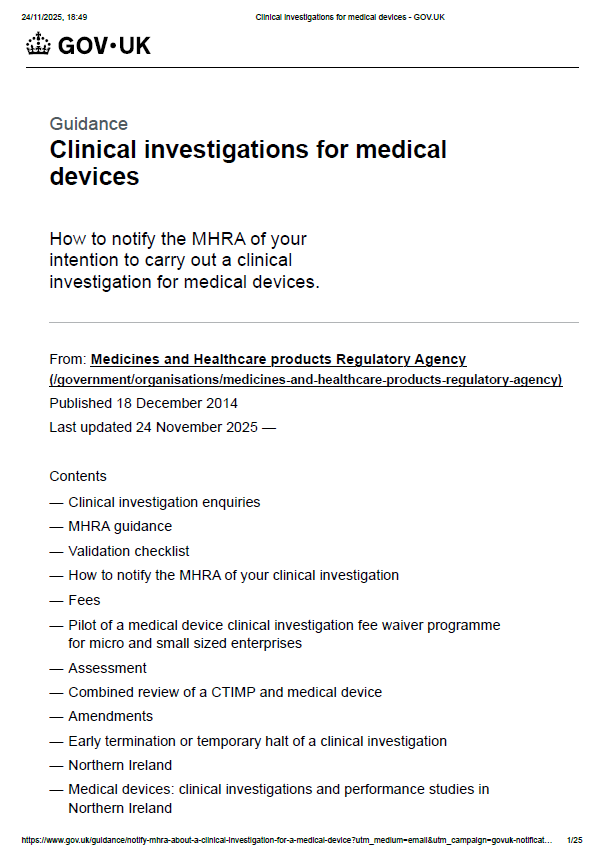MHRA Publishes Updated Guidance on Clinical Investigations for Medical Devices: Key Implications for Manufacturers
The MHRA has released updated guidance on clinical investigations for medical devices, outlining the requirements manufacturers must meet when planning, submitting or conducting clinical investigations in Great Britain. The guidance clarifies procedures under the UK Medical Devices Regulations 2002 (as amended), the expectations for demonstrating device safety and performance, and the documentation required for regulatory submissions.
The document also reflects the evolving UK future regulatory framework and the MHRA’s increased emphasis on transparency, patient safety and robust clinical evidence.
Impact on Medical Device Manufacturers
1. Clearer submission requirements and documentation standards
Manufacturers must provide complete, high-quality submissions when seeking MHRA approval for clinical investigations. This includes detailed risk assessments, device descriptions, investigational protocols, IBs, justification of design, and valid evidence of conformity. Incomplete documentation results in delays or rejection.
2. Strengthened expectations for safety and performance evidence
The MHRA reinforces the need for credible clinical data, aligned with ethical standards and good clinical practice. Manufacturers must demonstrate that investigational devices meet essential safety requirements before enrolling participants.
3. Specific requirements for UK-based investigations
Manufacturers intending to conduct investigations in Great Britain must follow UK-specific application pathways, timelines, reporting obligations, and adverse event notification rules — which differ from EU MDR processes.
4. Greater regulatory oversight and transparency
The updated guidance aligns with the MHRA’s broader strategy to enhance clinical investigation governance, including improved assessment processes, clearer communication routes, and stronger post-market expectations once devices enter the GB market.
5. Importance of early engagement with the MHRA
Manufacturers are encouraged to seek pre-submission advice, especially when dealing with novel technologies, digital devices, or higher-risk products. Early regulatory engagement can minimise delays and ensure compliance with UK-specific expectations.
Manufacturers planning to place devices on the UK market — or conduct clinical investigations in Great Britain — should carefully review this updated guidance to ensure full alignment with MHRA requirements.
The complete MHRA document is available for download below.
